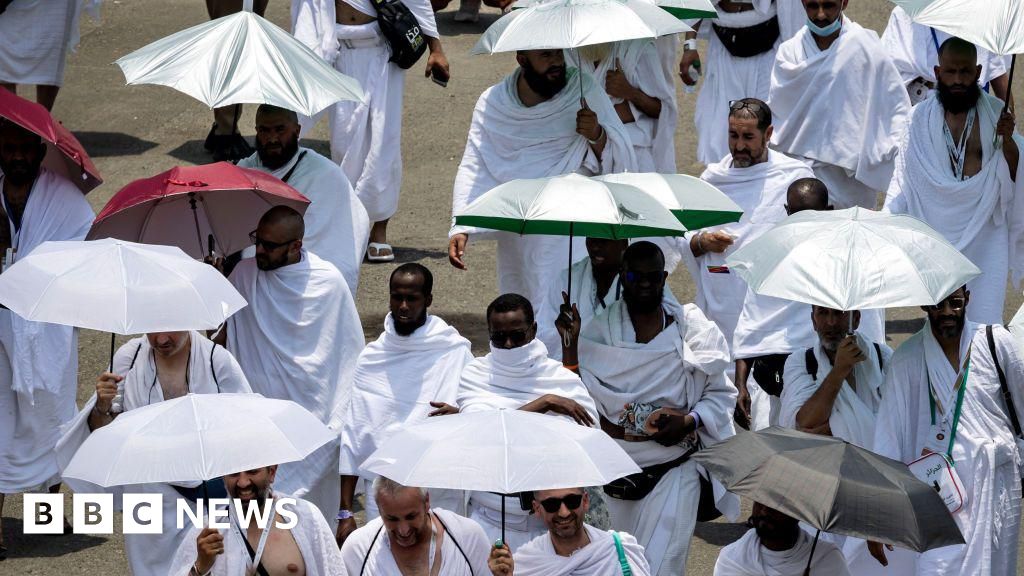At least 14 Jordanian citizens have died from intense heat during the Hajj pilgrimage in Saudi Arabia, officials said.
Jordan’s foreign ministry said 14 Jordanian nationals had died “due to heatstroke due to the extreme heat wave” and 17 others were reported missing.
The Iranian Red Crescent Society confirmed that five Iranian pilgrims were also killed, but did not specify the cause of death, according to AFP.
Jordanian officials said the search for the missing persons was continuing.
The Jordanian Ministry of Foreign Affairs said in a statement that it was coordinating with the Saudi authorities on the procedures for burying or transporting the bodies of the deceased according to the wishes of the family.
The Hajj is one of the largest mass gatherings in the world. According to Saudi officials, more than 1.8 million pilgrims are participating this year.
But it has a history of deadly disasters, including stampedes and tent fires. But most years, the main challenge comes from the heat.
Temperatures have topped 46 degrees Celsius (114.8 degrees Fahrenheit) this week, making many rituals performed outdoors and on foot challenging, especially for older adults.
Ayman Ghulam, head of Saudi Arabia’s National Meteorological Center, warned last week: “The average temperature during the Hajj this year is expected to rise by 1.5 to 2 degrees. [Celsius] The situation in Mecca and Medina is above normal.
These two cities are the center of the five-day Hajj.
Saudi Arabia’s official news agency reported that a treatment center near Mount Arafat recorded 225 cases of heat stress
“It’s physically tiring but mentally energizing,” Canadian pilgrim Neron Khan told AFP.
She added that during some of the rituals, she was in “some kind of state of heat exhaustion.”
The pilgrimage ends on Wednesday. Saudi officials say they have established a number of climate-controlled zones as part of measures to mitigate the heat. They handed out water and gave pilgrims advice on how to protect themselves from the sun.
The Saudi Ministry of Health has also issued an advisory asking pilgrims to stay hydrated and avoid going out during the hottest times of the day (10:00 to 16:00).
Last year, at least 240 people died. In the worst hajj disaster, a deadly crush in 2015 killed more than 2,000 people.

